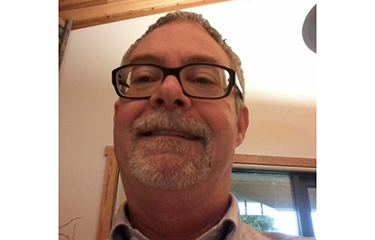After a decade at the helm of the Oregon Crab Commission, Hugh Link has begun 2023 in retirement with his sights set on knocking off some items on his bucket list.
Link officially stepped down as of 1 January, 2023, after 20 years with the commission, passing the reins to Tim Novotny, who joined the group in 2017 and most recently served as its communications manager.
Link’s involvement with the commission had humble beginnings.
In the 1990s, while working at a fish plant, he would often volunteer at fisheries-related events, coming to the attention of the commission, who recruited him as an administrative assistant in 2004. The Oregon Crab Commission represents a fleet of 424 boats in the U.S. state of Oregon, handling marketing, information, education, and research functions for the fishery.
“I thought, ‘Man, if I could ever go to work for the crab commission, I would love that,” he said.
He worked as the commission's executive assistant for just under nine years before being named executive director in 2013, replacing longtime executive director Nick Furman, who retired after 22 years with the commission.
“I had management experience in fisheries, I did a lot of sales, so I kind of fit the niche for what they wanted,” he said.“That was kind of my dream job, that I always wanted for years and years and years.”
Link's extensive experience in the seafood industry helped him navigate the commission through a number of challenges, one of which was successfully obtaining Marine Stewardship Council certification for Oregon's Dungeness crab fishery, which has a commercial history dating back over a century and is perennially Oregon’s most-valuable fishery.
“We worked [on it] for seven years, which is really unusual, but it's because our fishery was data-deficient,” Link said. “We had a very efficient management system that wasn't globally accepted – the size, sex, and season. It's worked for us for 100 years, so we continued with that management.”
However, the effectiveness of the management meant that not a lot of effort was put into data.
“That just meant that nothing was broken, so not that much research was being done on things because we didn't have any problems," Link said.
Another challenge was when the commission became tangled in a state drive to boost renewable energy in Oregon by harnessing the power of the ocean’s waves. The problem was, the infrastructure for the initiative was poised to be set up in an area that overlapped with lucrative and traditional crab-fishing grounds.
“Wave energy was our first introduction to real, alternate uses of the ocean. All of a sudden we had to learn all about [The Federal Energy Regulatory Commission] and all of the different things that we had to do to engage with these wave-energy companies, and it was quite eye-opening," Link said.
The wave-energy project was eventually scrapped, but the experience was a beneficial exercise for Link in navigating through complex issues, multiple federal and state agencies, and getting familiar with an endless list of acronyms. Link said the institutional knowledge gleaned from the wave-energy issue is helping with a new challenge today.
“Now we're into wind energy, and that's really scaring not only the crab fleet, but the whole fleet in Oregon,” Link said.
Link listed his attendance of Seafood Expo North America in Boston, Massachusetts, U.S.A. more than 20 times as a highlight of his tenure. He also said working with local community groups was always rewarding.
“I love consumer events where we get to deal with children, and especially working with the Newport Fisherman's Wives in Oregon. That has been huge for us,” he said. “We’re able to work some events with them, and talk about fishing families and the importance of independent businesses and each and every crabber.”
While Oregon’s crab fishery had a delayed start this year after surveys found legal-sized males still lack enough recoverable meat in their shells, Link said he has been fortunate to never deal with a crash in crab abundance.
“We're a different management type of system, we don't have a stock status. We have a cyclical fishery, it goes up and down, but we've never crashed in Oregon,” he said. “We don't catch any female crab – if we do, they go right back in the water. We have escape rings in our pots for it. We don't catch any males under six-and-a-quarter inches so that the younger ones that are the broodstock can continue on.”
Link has departed the commission as it continues to fund research on important issues to the fishery, taking a closer look at issues such as whale entanglements and hypoxia, which is caused by low oxygen conditions in the ocean and has resulted in fishermen pulling up pots full of dead crabs in the past.
“That's the advantage of the commission and that's why I love it so much: We can fund this research for the fishermen,” he said.
Looking at the numbers, Link said Oregon’s crab fishery harvests have been able to stay around the 10-year average of 16 to 17 million pounds during his time with the commission.
And 2022 was a standout year, with the fishery netting a record price for Oregon’s commercial crab fleet, bringing in USD 92 million (EUR 84.6 million) to the state’s economy.
“We've done really super-well at the commission and the crab fishermen are the only reason,” he said.
At 64 years old, Link said he’s retiring a little early. His big focus moving forward will be taking his stress levels down a few notches.
“I'm trying to cross off a few things on my bucket list … I'm going to take care of myself, and get back into shape and try to live a little bit of a stressless life for a couple of years,” he said. “And then maybe I'll think about doing some consulting work or something.”
And for parting words for his successor?
“I've wished him the best of luck, and I know he'll do a great job,” he said. “I just want him to enjoy the job as much as I did.”
Photo courtesy of Hugh Link/LinkedIn







